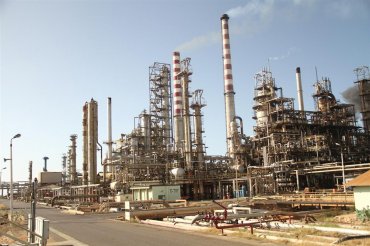Venezuelas economic and political crisis has hammered its vaunted petroleum industry, and the nations lubricant market is suffering along with it.
Domestic base oil output has been battered by disruptions during the past year, and currency devaluation has hampered imports. Lubricant marketers have had difficulties meeting base oil procurement needs, while also seeing declines in demand.
Venezuela is one of the worlds largest petroleum producers, and the industry is by far the largest pillar of the nations economy. In the past it has represented 50 percent of gross domestic product and 95 percent of the nations exports. These days, however, people talk of the potential for the industry to collapse.
Venezuela still ranked among the worlds 10 largest oil producers in 2017, with an average output of 2.4 million barrels per day, but that was down from a peak of more than 3 million b/d in the past. The slide in production has continued in 2018 and is now below 1.5 million b/d. “This year alone, it has fallen by some 500,000 b/d,” Mark McHugh, of energy investment firm Entoro International said in an interview.
The countrys economy is in tatters, with hyperinflation reaching 14,000 percent and widespread shortages in medicine and food. Thousands of people have fled the country. The situation wasnt helped by economic sanctions that the United States imposed last year after President Nicols Maduro Moros won a disputed election.
Domestic base oil production has been hamstrung by fires at both of the countrys two largest plants. The plant at PdVSAs Punta Cardon refinery on the Paraguana peninsula in Northern Venezuela, was damaged in an October blaze. It has capacity to make 300,000 metric tons per year of API Group I oils. Then in December another fire struck the Amuay refinery, also part of the Paraguana refining complex, which includes a 65,000 t/y Group I plant.
PdVSA declined to comment on the status of the plants or to answer other questions for this article.
Venezuela has in the past imported substantial volumes of base oils, but that traffic has slowed because inflation has sapped the ability of local companies to pay. As a result, supply of finished is also constrained.
Currently, we do not have any supply, a general manager for a local distributor told Lube report, requesting anonymity of the company.
PdVSAs problems also extend to the Isla Refinery on the nearby island of Curacao, which the company managed for years. That refinery includes a base oil plant with capacity to make 195,000 t/y of Group I and naphthenic base stocks. The entire refinery has been closed in May, 2017, something that could impact gasoline and propane gas supplies and negatively impact the economy of the island.
One solution is to expand the island’s storage capacity so that it has emergency reserves, according to Curaao Prime Minister Eugene Rhuggenaath who has been discussing possible solutions with local refinery Refineria di Krsou and local distributor Curoil since last year.
Meanwhile, due to a fallen-out deal with China’s Guangdong Zhenrong Energy, the Curaao government is actively seeking new partners to invest in the facility and its upgrades. The minimum investment needed tops $1.5 billion.
PDVSA has defaulted on its lease agreement and the possibility of a contract renewal in 2019 is unlikely. Supply from the refinery is just unreliable, said McHugh.
Photo courtesy of PDVSA
